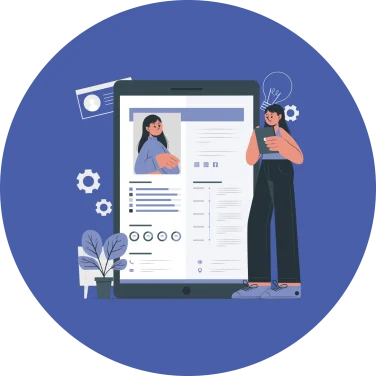In our previous blog, we have discussed the turn of events in People Analytics with the aid of Digital HR. We will now be looking into how People Analytics would help make your HR decisions better.
Traditionally, HR departments have spent many hours, perhaps days to generate reports to facilitate HR analytics requested by the business leaders. Digital HR has removed this challenge by empowering organizations with real-time and accurate workforce analytics. Such workforce analytics support the HR decisions through many aspects:
Predict the future
HR insights will showcase trends on employee attendance, highlights on employee performance, recruitment analysis, and insightful analysis on talent flow, diversity and other aspects. Using these analytics, HR and business leaders can spot talent trends and use this insight for future HR decisions.HR analytics powers a data-driven business entity
With HR insights, every decision in your organisation will be backed by insights. This means every HR and talent decision will be much accurate. Performance analytics provided by a digital HR solution will indicate best performers, the comparison between employees’ performance records etc. Thus, the management could utilise this insight to decide future promotions, performance rewards to other benefits. Selecting successors for critical leadership roles also could be done based on the analytics. Global organisations would have the capability of monitoring attendance records of a globally scattered workforce. Access to a wide range of information on absenteeism, analytics on leave etc. will help HR departments to streamline and improve employee attendance. Likewise, HR analytics is becoming a game changer in organisations, helping HR and management teams to make confident people decisions underpinned with facts, not as gut responses. Deloitte’s research this year unveils similar statistics where; 71 percent of companies have rated that the people analytics must be considered high priority in their organisations. (31 percent has rated it as very important) Further, only 8 percent say that they have usable information; 9 percent have the confidence that they understand which areas in talent management is important for performance, and only 15 percent have widely provided HR and talent scorecards to their senior levels. Readiness has become a serious issue. However, people analytics could avoid the mistakes that the traditional HR systems would make.- Choosing the wrong person for a role affects the team’s productivity and inevitably leads to more resources being wasted as you look for a replacement. Instead of depending on HR team, digitized people analytics would give you a clear vision of the best person to hire for the job title.
- Now, with people analytics, companies can get to know their own workforce rather than making unfounded assumptions. The insights gained can help them engage the best employees and retain them, to avoid costly turnover.
- It’s immensely helpful with both business decision-making and predicting and preventing work-culture dips.
- Being able to avoid paying more for unemployment insurance, or wasting a paycheck on an employee who isn’t being productive, is a big benefit.



